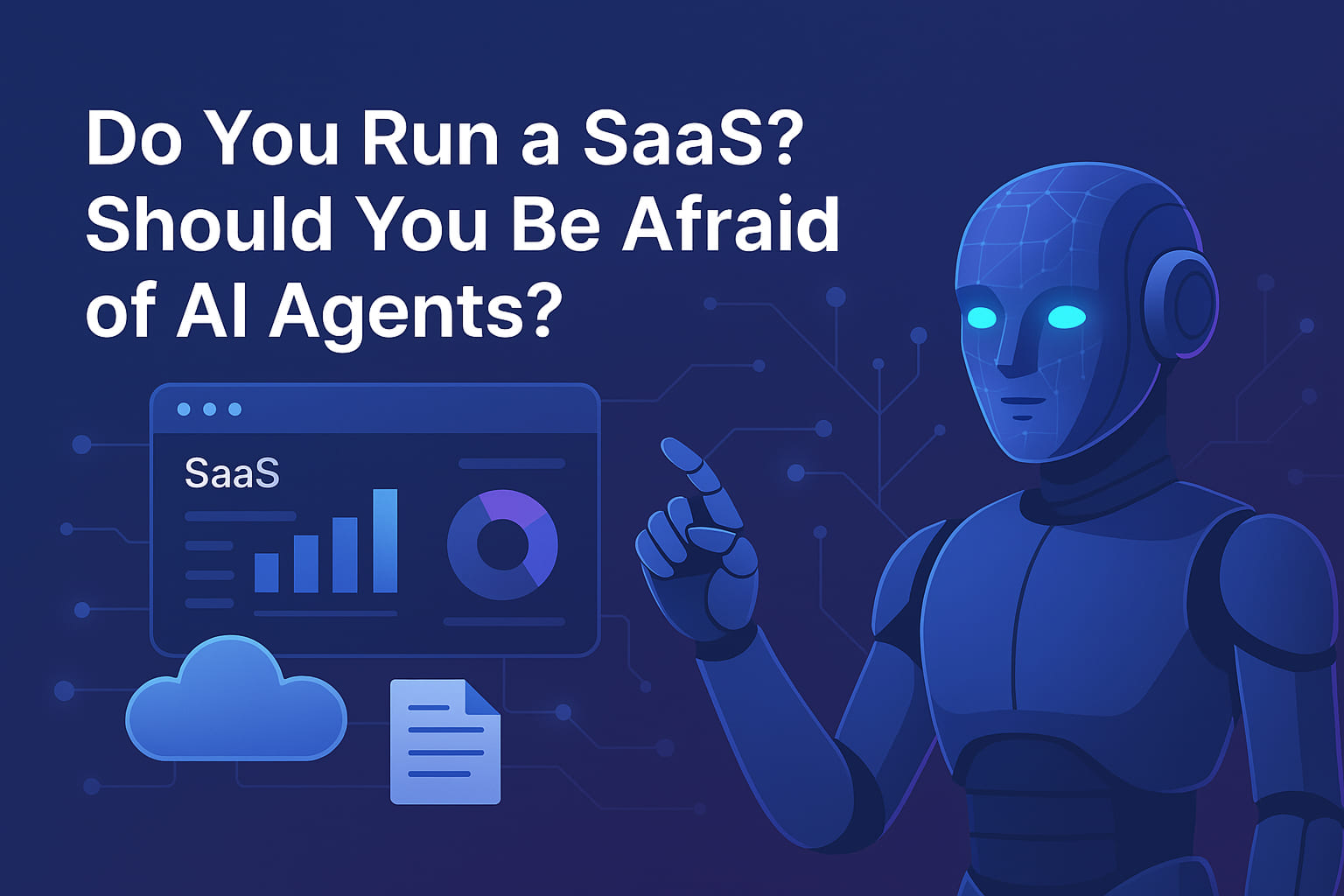Do you run a SaaS? Should you be afraid of AI Agents?
Introduction to AI Agent
AI agents are independent systems programmed intelligently to function without the involvement of humans. They enhance the capabilities of AI chatbots through their decision-making ability and advanced learning mechanism over time. Agentic AI works best in scenarios wherein certain goals have to be accomplished by making smart utilization of the available resources and tools.
How does an AI agent impacts current SaaS platforms?
Modern businesses, especially SMBs, are hugely influenced by these agents in terms of performance, operation, and productivity. The way users interact with the systems, the approach considered to integrate processes across ecosystems, and the way business models are interpreted will change the perception of a user entirely about a SaaS product.
Change in how user interacts
- AI agents can shift SaaS from form-based and UI-heavy workflows to natural language or goal-based interfaces.
- Instead of clicking through dashboards, a user might just say, “Get me a list of overdue invoices and email reminders to clients.”
Integration across ecosystems
- AI agents stitch together smaller, specialized tools into a coherent workflow automatically.
Impact on business models
- AI agents can enable usage-based pricing at a more granular level (e.g., based on the tasks performed) or lead to an Agent-as-a-Service (AaaS) layer on top of SaaS (e.g., pay for a finance agent that uses your accounting software).
SaaS need to evolve and adapt to the changing landscapes in the IT industry. If you are in SaaS, then your platform should adapt to the above shift. Focusing more on this aspect, a SaaS platform will have to do the following:
Expose capabilities in a way agents can use (API-first, semantic APIs, task definitions)
AI agents are capable of completing tasks faster without being error-prone taking off the pressure from the humans without needing their intervention. However, there has to be enough glorification on the capabilities available so that the agents could make best use of them. In an API-first model, the AI agent interacts with the systems through APIs leading to better integrity and optimum scalability. Similarly, the focus on semantic APIs leads agents to learn more in detail not just about the interface alone but also about the library and command line as well.
Enable agent-native experiences (like Slack bots or embedded assistants)
AX or Agent Experience is in demand because of the successful development of a product with the agents playing the role of users by themselves. As a result, the products developed will be cost-effective and the solutions available will be flexibly implemented across platforms. Agent-native experiences lead to a different layer of performance as the agents get to choose the best tool to do a task, work upon a relevant API syncing to the SDK, and perform audit logs to give complete visualization about a certain error.
Offer potentially your own domain-specific agents
Enterprise-grade implementations keep evolving and often require precision with which a task is completed. However, the case of AI agents performing under normal circumstances may not be suitable where quality matters and the process is time-bound. Domain-specific agents are leveraged to overcome such discrepancies as they are known to infuse data-driven insights based on a detailed analysis of the current trends. For instance, an AI agent could be trained and adopted in the Healthcare domain with it having modelled appropriately about medical imaging to improve the quality of diagnoses.
Write to us at [email protected] to learn more about how AI agents impact your SaaS products and applications.





